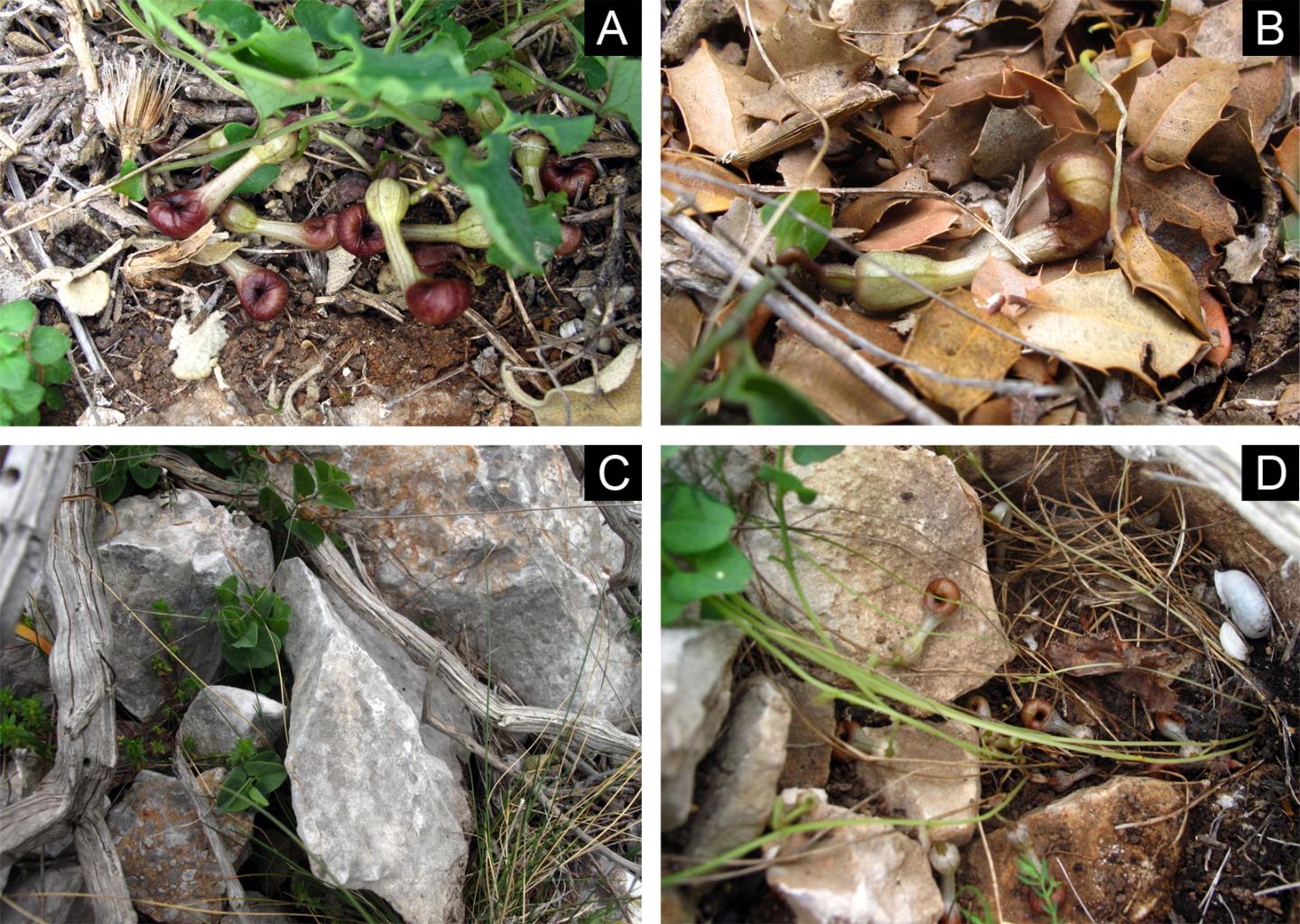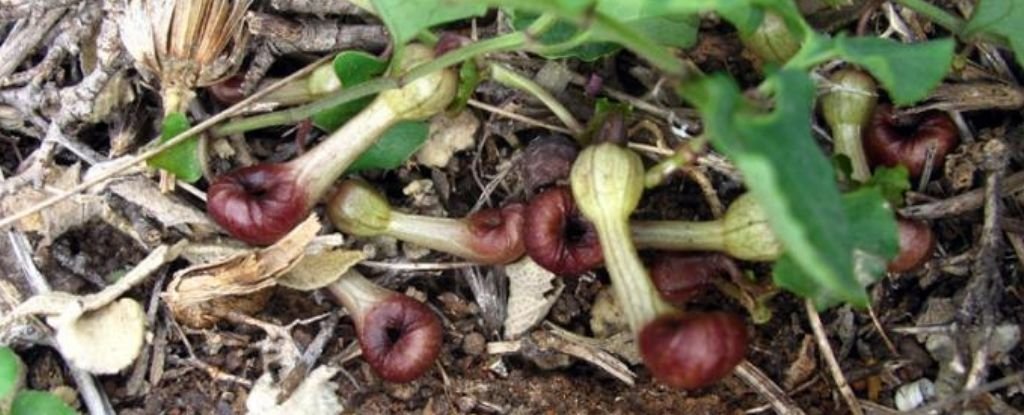Products You May Like
Not all flowers smell like roses. An unusual plant in Greece gives off the scent of decaying insects, probably as a way to attract and trap coffin flies (Megaselia scalaris).
The stinky flower is called Aristolochia microstoma, and according to scientists, it’s the first known case of a plant that reeks of dead invertebrates to spread its pollen.
Coffin flies, as their name suggests, seek out decaying matter in which they can lay their eggs, thus providing food for the hatched larvae. This usually means a vertebrate corpse or feces.
But the cocktail of smells produced by A. microstoma is a little different from the smell emitted by dead mammals.
“Many Aristolochia species are known to attract flies with floral scents, for example mimicking the smell of carrion or feces of mammals, decaying plants, or fungi,” explains Thomas Rupp from Paris-Lodron University of Salzburg in Austria.
“But our curiosity was piqued by A. microstoma, a species known only from Greece: unlike other Aristolochia with their showy flowers, A. microstoma has inconspicuous brownish flowers that lie horizontally, partly buried or close to the ground among leaf litter or rocks. The flowers release an unpleasant, carrion-like smell, noticeable to people at a short distance.”
 (Rupp, et al., Frontiers in Ecology and Evolution, 2021)
(Rupp, et al., Frontiers in Ecology and Evolution, 2021)
Above: (A) A. microstoma flowers half-buried in the ground (B) among litter (C,D) or rocks.
Flies are the second most important pollinator on Earth, and in some places, they may be even more important than bees in spreading pollen. That said, they are often overlooked as key fertilizers of plants.
Until now, A. microstoma was thought to be pollinated by small arthropods, like ants, that live in leaf litter on the ground, but this new research suggests flies are the main pollinators.
Examining 1,457 of these trap flowers from three spots in Greece, researchers found different members of the Megaselia genus stuck inside.
Upon entering the bloom, these insects become trapped. Stuck in the plant’s small hair-like growths, the flies deposit any pollen they have picked up from other flowers, fertilizing the female parts of the plant.
Before the flower’s bristles shrink and reveal an exit, the flies are also covered with pollen from the male parts of the plant to spread elsewhere.
When the team further analyzed the scent of these blooms, they found 16 compounds that together smell like decomposing meat. One of those compounds, the alkylpyrazine 2,5-dimethylpyrazine, emits a musty, roasted nut scent.
It also happens to smell like decaying beetles and the urine of rodents.
“Very few plants are known to produce this compound, strongly suggesting that A. microstoma mimics an unusual fake ‘reward’ to attract specialist pollinators,” the authors conclude.
Interestingly, vertebrate carrion isn’t known to emit 2,5-dimethylpyrazine, either.
“Our results suggest that this is the first known case of a flower that tricks pollinators by smelling like dead and rotting insects rather than vertebrate carrion,” says plant ecologist Stefan Dötterl from the Botanical Gardens at the Paris-Lodron University of Salzburg.
Even A. microstoma‘s location so close to the ground may add to the deception, further tricking the coffin flies into thinking they’ve found one of their customary feeding or breeding sites.
Next, the researchers plan to test just how attractive the coffin flies find these scent compounds to confirm that the dead insect smell is A. microstoma‘s true strategy.
The study was published in Frontiers in Ecology and Evolution.
